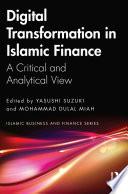
PALESTINA : Komunikasi Kemerdekaan dan Tragedi Kemanusiaan
“Tragedi kemanusiaan terhadap Palestina yang dilakukan oleh Zionis Israel melanggar Hak Asasi Manusia dan Hukum Internasional dari berbagai segi. Baik hak untuk hidup, hak memiliki properti, hak keamanan, hak kesehatan, hak pendidikan maupun hak menjalankan agama. Dunia Internasional sudah saatnya melakukan komunikasi secara serius agar masyarakat Palestina mendapatkan kemerdekaan sejati.”
- ISBN 13 : 6239634883
- ISBN 10 : 9786239634889
- Judul : PALESTINA : Komunikasi Kemerdekaan dan Tragedi Kemanusiaan
- Pengarang : M.Sos., Samsuriyanto, S.Kom.I., Ade Shyl Vionalita Ameilsya, Prameswari, Adel Oktaviani, Ananda Putri Isnain, Anisatus, Shofiyah, Aura Kurmalasari, Bela aldama, Beta Oktavia Nugraha, Deviani Putri Ismawati, Guruh Mahardika Purnama Putra, Indah Ayu Permatasari, Irma Damayanti, Ismi Khoirunnisa, Kartika Arie Purwati, Khusnul Habdiyanti Lailiyah, Kristina Kuntarini, Laily Dzihni Kharisma, Lian Qotrul Nada Arisyufa, Mufidu Ikhsan Putra Ramadhani, Muhammad Zaqi Gufron, Nada Septalia, Nadia Putri Emilia, Nikita Lawrence, Nikmatul Ulla, Novy Wulandari, Nur Syamsiyah, Pradipta Nurbakti Hidayatullah, Raditya Jalu Gantari, Ridail Magfiroh, Rizkah Intana Rahmah, Rohmawati, Shirin Hafiya, Sinta Nurya Aini, Vernanda Kartika Putri, Whina Amarsanda Priehayudha, Zakkiyah Amilia Sari, S.Kom.I., Ade Shyl Vionalita Ameilsya, Prameswari, Adel Oktaviani, Ananda Putri Isnain, Anisatus, Shofiyah, Aura Kurmalasari, Bela aldama, Beta Oktavia Nugraha, Guruh Mahardika Purnama Putra, Indah Ayu Permatasari, Irma Damayanti, Ismi Khoirunnisa, Kartika Arie Purwati, Khusnul Habdiyanti Lailiyah, Kristina Kuntarini, Laily Dzihni Kharisma, Lian Qotrul Nada Arisyufa, Mufidu Ikhsan Putra Ramadhani, Muhammad Zaqi Gufron, Nada Septalia, Nadia Putri Emilia, Nikita Lawrence, Nikmatul Ulla, Novy Wulandari, Nur Syamsiyah, Pradipta Nurbakti Hidayatullah, Raditya Jalu Gantari, Ridail Magfiroh, Rizkah Intana Rahmah, Rohmawati, Shirin Hafiya, Sinta Nurya Aini, Vernanda Kartika Putri, Whina Amarsanda Priehayudha, Zakkiyah Amilia Sari, S.Kom.I., Ade Shyl Vionalita Ameilsya, Prameswari, Adel Oktaviani, Ananda Putri Isnain, Anisatus, Shofiyah, Aura Kurmalasari, Bela aldama, Beta Oktavia Nugraha, Guruh Mahardika Purnama Putra, Indah Ayu Permatasari, Irma Damayanti, Ismi Khoirunnisa, Kartika Arie Purwati, Khusnul Habdiyanti Lailiyah, Kristina Kuntarini, Laily Dzihni Kharisma, Lian Qotrul Nada Arisyufa, Mufidu Ikhsan Putra Ramadhani, Muhammad Zaqi Gufron, Nada Septalia, Nadia Putri Emilia, Nikita Lawrence, Nikmatul Ulla, Novy Wulandari, Nur Syamsiyah, Pradipta Nurbakti Hidayatullah, Raditya Jalu Gantari, Ridail Magfiroh, Rizkah Intana Rahmah, Rohmawati, Shirin Hafiya, Sinta Nurya Aini, Vernanda Kartika Putri, Whina Amarsanda Priehayudha, Zakkiyah Amilia Sari,
- Kategori : Social Science
- Penerbit : Inoffast Publishing Indonesia
- Bahasa : id
- Tahun : 2021
- Halaman : 90
- Google Book : https://play.google.com/store/books/details?id=_cM2EAAAQBAJ&source=gbs_api
-
Ketersediaan :
Oleh: Samsuriyanto Jauh sebelumnya, penghinaan Macron terhadap Islam dianggap kebebasan ekspresi dan bagian dari Hak Asasi Manusia (HAM). Padahal ucapan Presiden Prancis itu bisa sebagai biang permusuhan dan menimbulkan kegaduhan dengan ...







